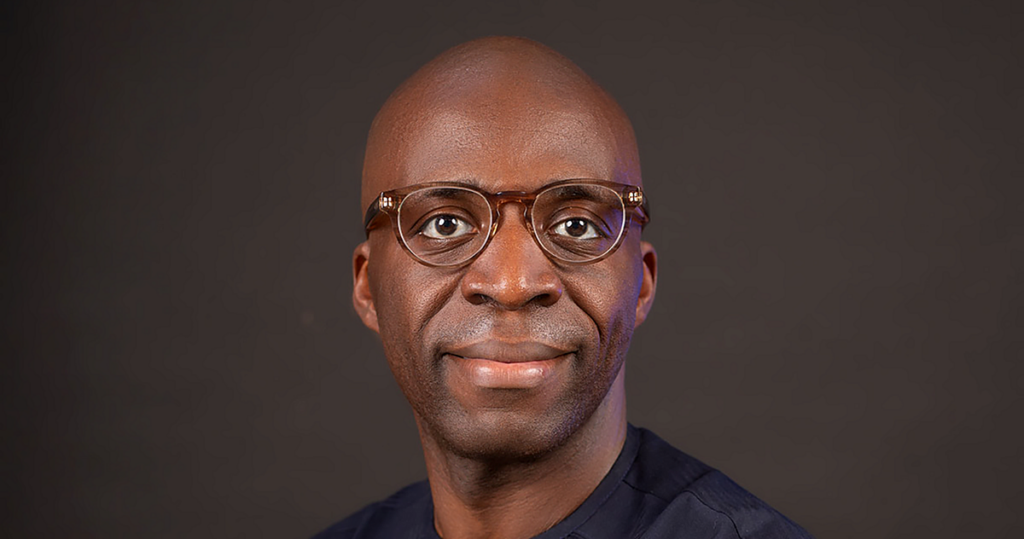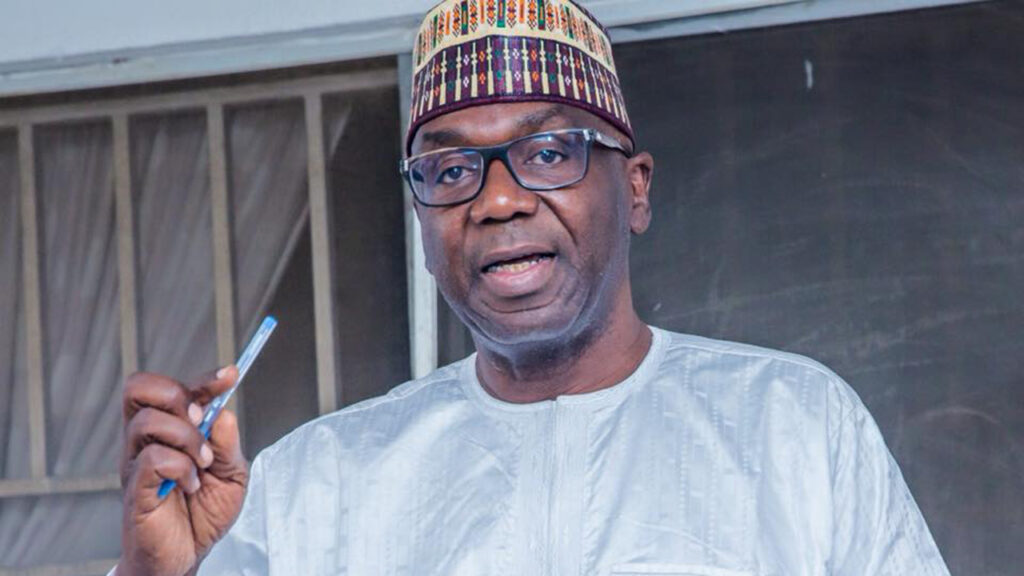The tradition of extending tenure of political appointees at the pleasure of Mr President unnerves some Nigerians, especially lawyers, who have hinged the practice on illegality that should be avoided by President Bola Tinubu, Joseph Onyekwere writes.
Although the practice of tenure elongation predates the administration of former President, Muhammadu Buhari, he gave it currency by spreading same to various agencies of government and even the academia.
For instance, before he left office, he extended the tenure of Usman Alkali Baba, the Inspector General of Police (IGP). Baba was appointed as IGP in April 2021. However, on March 1, 2023, he clocked 60 years. According to his profile, he was commissioned into the Nigeria Police Force (NPF) on March 15, 1988, as a cadet assistant superintendent of police.
By the public service rule, he was supposed to leave office on clocking 60, but that never happened until the new president, Bola Tinubu, removed him few weeks ago.
Similarly, Buhari had, on February 4, 2021, extended the tenure of Baba’s predecessor, Mohammed Adamu, by three months after he clocked the mandatory 35 years in service on February 1.
He also did the same in the case of the appointment of Dauda Ali Biu as the acting Corps Marshal of the Federal Road Safety Corps (FRSC). Biu was born in 1964 in Zaria, Kaduna State but hails from Hawul Council of Borno State and joined the FRSC in 1988. He ought to have resigned on March 1, 2023, upon attaining the mandatory 60 years, but that never happened.
Former Comptroller General of the Nigerian Immigration Service (NIS), Mr. Isah Jere, also enjoyed the same tenure extension by Buhari. Section 7 (6) of the 2020 Police Act stipulates: “The person appointed to the office of the Inspector-General of Police shall hold office for four years.”
Section 18(8) of the same Act, which makes direct reference to the civil service rule on retirement, states: “Every police officer shall, on recruitment or appointment, serve in the Nigeria Police Force for a period of 35 years or until he attains the age of 60 years, whichever is earlier.”
Also, Sections 215 (1) (a) and 216 (2) of the 1999 Constitution provide for the mode of appointment of the IGP. Notwithstanding these clear provisions, Presidents, at their pleasures always find excuses to elongate the tenure of such officers, dampen the moral of their colleagues, erode the independence of the institutions and ultimately enthrone corruption.
The Human Rights Writers Association of Nigeria (HURIWA), through Emmanuel Onwubiko, said such practice is a violation of the Civil Service Rule, and as such, illegal.
Lagos-based lawyer, Tony Odiadi, believes the current practice of Presidents granting extension of tenures to officers in the uniformed and civil services is wrong and against the law.
According to him, the extant position is clear that whoever attains 60 years of age or has put in 35 years of service must retire. Tracing the history of the practice, he said: “From the time of the late General Sani Abacha, the practice began to take hold. Because Abacha was in power and was way beyond 35 years, every other officer in uniform was allowed to stay.
“Now, Buhari restored that practice. First, his military service chiefs spent several year past their retirement tenure and he then of recent kept the former IGP and CG of Immigration to remain in office long after their retirement due date.
“More specifically, section 215(1) of the Constitution empowers the President to make the appointment of the IGP, the tenure is for four years. What happens when the retirement age is attained before the four-year tenure terminates? That is usually the point when such officers run to the president for extension of service.”
The practice, he said, clogs the top hierarchy of the Force. Odiadi regretted that as it is with the Police, so is it with the Military and the other uniformed services.
His words: “About 135 Generals and other officers were recently retired on grounds of excess seniority. The IGP too is obliged to direct or nudge his seniors to leave office. If the Customs and Immigration implement the seniority directive for proper command structure, then the top-heavy structure will be amply off-loaded.
“Are these steps illegal or in keeping with good practice in Command organisations? I submit that good command and control allows that. Every officer holds his commission at the pleasure of Mr. President, particularly at the topmost hierarchy levels.”
Former National President of the Committee for the Defence of Human Rights (CDHR), Mr. Malachy Ugwummadu, said the practice borders on corruption, illegality, abuse of power and breach of conditions of service and rules of engagement.
He stated that once the offices of such appointees are statutorily created with definitive tenure, the legality of any continued stay in the same office beyond such prescribed periods (except as permissible for renewal under the same enabling statute) is called to question as they relate to illegality and constitutionalism.
“These are not exactly the same category of appointees whose appointments persistent at the pleasure of the President (S.177 of the 1999 Constitution) or Governor because theirs are regulated by law with statutory flavour.
“The implications are as I have espoused in the foregoing paragraphs except to add that such illegal extensions instantly operate as a disincentive, demoralising and discouraging force and factor in a workplace, and consequently affects productivity and commitment,” he declared.
Also, human rights lawyer, Festus Ogun, thinks that appointees appointed in accordance with the law cannot stay beyond their statutory tenure.
“I think the position is very simple, it will be illegal for their tenure to be extended, especially where the status makes clear a provision in respect of their time limit in office.
“So, if the appointees have reached the end of their tenure, then I think it will be grossly illegal and unconstitutional for the president or any executive to extend their tenure in office which is clearly not within the contemplation of law. Those who have exhausted their tenure are to leave office and are not to be extended,” he stated.
Ogun insisted that executive fiat by mere words from the President cannot take the place of law. Where the law provides that it should be done in a way, he stressed, it cannot be done in any other way.
“Once the tenure of a person has expired, the President or the governor does not have the power to make an extension, except in circumstances where maybe the appointment of that person is subject to renewal, but where there is no case of renewal, I don’t think a president or governor have the power in law to arbitrarily extend the tenure of an appointee, having clocked the statutory time in office,” he stressed.
But Abubakar Sani, Kano-based lawyer argued that though it is wrong and invalid, by the provision of the Interpretation Act, the President can appoint a person to act in an acting capacity, subject to either confirmation or replacement by a substantive appointee.
“My view is consistent with the provisions of Section 11(1)(c)(i) of the Interpretation Act: such an appointment is unimpeachable, because the appointer can renew the appointment, reappoint him/her – provided any conditions precedent thereto are complied with. If they are not, then it remains inchoate until they are – failing which the appointment is invalid and void,” he argued.
The interpretation Act, he noted, provides in 11(1) “Where an enactment confers a power to appoint a person either to an office or to exercise any functions, whether for a specified period or not, the power includes (a) power to appoint a person by name or to appoint the holder from time to time of a particular office; (b) power to remove or suspend him.”
Also, “(c)power, exercisable in the manner and subject to the limitations and conditions (if any) applicable to the power to appoint, (i) to reappoint or reinstate him, (ii) to appoint a person to act in his place, either generally or in regard to specified functions, during such time as is considered expedient by the authority in whom the power of appointment in question is vested.”
On account of those, Sani maintained that the president could extend the tenure of his appointees. Following widespread criticism such extension elicited in the past, a lawyer, Maxwell Opara, had sued the IGP, contending that by virtue of section 215 of the 1999 Constitution and Section 7 of the Police Act, the then IGP Adamu cannot continue to function as the IGP, having retired as a serving member of the force.
However, a Federal High Court in Abuja affirmed Buhari’s decision on the grounds that the constitution gives the President the power to appoint the IGP. Trial judge, Ahmed Mohammed, held that since the constitution and the Police Act empower the president to appoint an IGP, by implication, the president could extend the tenure of a retiring IGP before concluding the required consultation with the police council and other processes required for the appointment of a substantive replacement.
The judge also observed that the Constitution and the Police Act are silent on the issue of whether or not the president can extend the tenure of a retired IGP. Until the Supreme Court conclusively rule on the legality or otherwise of such practice, many Nigerians still believe it is a violation of the law and the civil service rule to extend the tenure of public officials.











